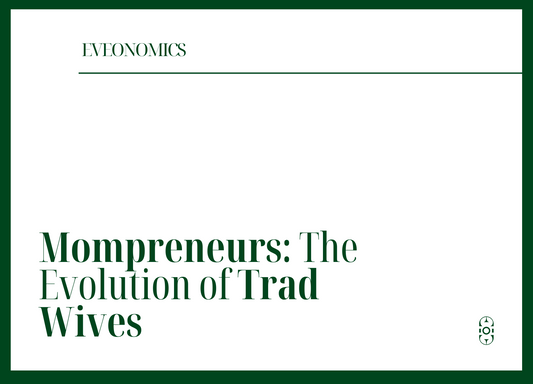When you think about wealth, it’s easy to picture financial success through the lens of material accumulation. But what’s more powerful than having money? Using it to create real, lasting impact. Strategic philanthropy isn’t just about throwing donations into the void and hoping for the best; it’s about being intentional and thoughtful, ensuring that every dollar counts and every effort aligns with personal values and long-term goals.
Wealth managers today are helping high-net-worth individuals (HNWIs) build a legacy through philanthropy by designing giving strategies that maximise impact, both socially and financially. Whether you’re a millionaire with an estate to leave behind or someone who wants to give back with meaning and purpose, these strategies can work for everyone. And it all starts with aligning your giving with what truly matters to you.
Philanthropy: More Than Just a Gesture
In a world where wealth isn’t just measured in dollars but in influence and values, philanthropy has become a core part of wealth planning. High-net-worth individuals are leveraging their wealth to push for change in the areas that matter most to them—whether it’s education, environmental conservation, or social justice.
But it’s not just about the causes. It’s about doing it with a plan. Wealth managers step in to create strategies that align a client’s values with their long-term financial goals, blending personal purpose with tax-efficient giving structures. These strategies don’t just benefit society; they benefit the giver by reducing tax burdens and ensuring that donations have the maximum impact.
Donor-Advised Funds (DAFs): Flexible and Focused
The first strategy you’ll often hear about in this space is the Donor-Advised Fund. Think of it like a charitable savings account that allows you to make a donation now, claim the tax benefit immediately, and then decide later where the money should go. It’s perfect for people who want to give but also want the flexibility to think through which charities align most closely with their vision.
Charitable Trusts: Giving with Structure
Now, for those who want to make more significant, long-term commitments, charitable trusts are often the way to go. These aren’t just for the billionaires; you don’t have to have a massive fortune to set one up. What’s beautiful about charitable trusts is that they allow you to set up recurring donations while also securing some benefits for yourself or your heirs. For instance, a Charitable Remainder Trust lets you receive income during your lifetime, with the remaining funds going to your designated charity after you’re gone. On the flip side, a Charitable Lead Trust sends regular income to the charity first, with the remaining funds going back to your heirs later—often with serious tax breaks.
Private Foundations: When You Want Full Control
For those who want full control, private foundations offer that level of oversight. These foundations allow you to be hands-on, guiding exactly where your funds go and what impact you want to make. They’re not the most accessible route for the average person due to the administrative costs, but if you’re looking for a deep level of involvement in managing your charitable giving, it’s a powerful tool.
Making Your Money Work for the World (and You)
The truth is, no matter your income level, philanthropy should be a part of your financial plan. It’s not about the number of zeros in your bank account—it’s about impact. Everyday people can get in on this by starting small, perhaps with a Donor-Advised Fund or including charitable bequests in their estate plans. The benefits aren’t just for the world—they’re for you, too.
Tax-Efficient Giving
Let’s not forget the tax benefits. Strategic philanthropy doesn’t just feel good—it’s financially smart. For high-net-worth individuals, minimising taxes is a priority, and giving can be one of the best ways to achieve that. Donations, whether through direct gifts or more complex structures like trusts, can significantly reduce taxable income. Everyday donors, too, can take advantage of these tax breaks, especially when contributing appreciated assets like stocks, which bypass capital gains taxes altogether.
Creating a Legacy
Philanthropy isn’t just about the here and now. It’s about building a legacy that outlasts you. Whether you’re giving to protect the environment, improve education, or fight inequality, structured philanthropy ensures that your contributions continue to make an impact long after you’re gone.
Wealth managers help craft these legacies, but even without one, you can still build your own by setting clear giving goals, choosing the right charitable structures, and regularly reviewing your plans to ensure that your contributions align with your evolving values and goals.
Everyday Strategic Philanthropy
Here’s the thing: you don’t have to be a millionaire to adopt the principles of strategic philanthropy. You can start by setting aside a small portion of your income for causes you care about. Consider opening a donor-advised fund for flexibility, or include a charitable bequest in your will. It’s not the amount that counts—it’s the thoughtfulness behind your giving.
The Bottom Line
Strategic philanthropy isn’t just for the wealthy—it’s for anyone who wants to give with purpose. With the right tools and a thoughtful approach, you can create a legacy that reflects your values, makes a tangible difference, and enhances your financial standing. It’s about making money mean something more—because, ultimately, wealth is a tool for change, not just personal gain.
*This article is for general information purposes only and is not financial advice. We are not licensed financial advisors. Please consult a qualified professional before making any investment decisions to ensure they fit your specific financial situation.





